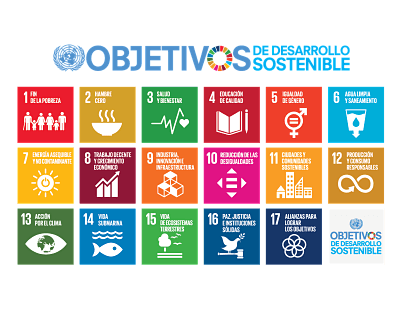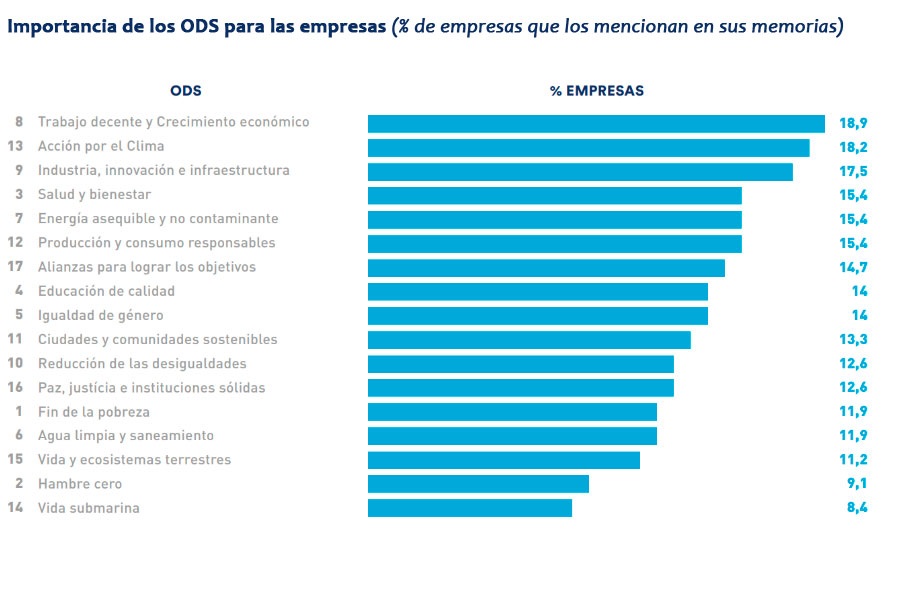The Sustainable Development Goalsknown by its acronym ODShave become increasingly important since their emergence in 2015. According to the United Nations the involvement of business in the achievement of the Goals is essential to achieve the 2030 targets, and it is also a cost-effective action for the company as it brings numerous benefits at the same time.
The role of business in the Sustainable Development Goals
The SDGs are 17 objectives promoted by the UN that aim to guide, in a coordinated manner, collective global action until 2030 to take steps to tackle the planet's major problems and address humanity's challenges. These range from ending poverty and hunger, promoting decent and inclusive employment to ensuring access to energy, among many others.
Although the Sustainable Development Goals may appear to be primarily a matter for states, they are also a matter for governments, business and civil society.

The SDGs are obviously very global goals but they need to be acted upon through local actions that add up and move in the same directionAs the saying goes, "you have to start by planting a seed for the forest to grow".
The business case for participation in the Sustainable Development Goals is strong because enhances the reputation of the entity and promotes innovation, generates new business opportunities, the SDGs improve the relationship between organisations and their employees, customers, investors and other stakeholders, increasing operational efficiency, motivation and talent retention..
However, anyone involved in the hectic day-to-day operations of SMEs knows the pressure for short- to medium-term returns. Companies' fear of embarking on a strategic plan that can be so far-reaching holds back their contribution to the SDGs. This is why the Sustainable Development Goals have opened an important framework for the private sector to understand, internalise and contribute to solving society's biggest challenges.
Businesses, a key actor for the Sustainable Development Goals
The initial contribution of the SME should be based on a foundation closer to its everyday life.For example, by promoting decent working conditions and salaries; by investing in R&D&I in technologies, health or agriculture; by implementing respect for human rights in their organisation and value chain; by reducing environmental impacts; by promoting transparency in their operations and in their relationship with governments.
Of course, not all SDGs receive the same attention from business, nor do all sectors have the same impacts and interests in them.
The SDGs with the greatest presence are 8 (decent work and economic growth), 13 (climate action), 9 (industry, innovation and infrastructure), 3 (health and well-being) and 7 (renewable energy).

Source: 'The contribution of Spanish companies to the Sustainable Development Goals'.
Practical guides for business and the scope of the Sustainable Development Goals
There are two guides to help the private sector integrate the SDGs into their internal management. The first is The private sector and the SDGs. Practical guide for actionThe second is the "Global Compact", carried out by the Spanish Network of the United Nations Global Compact. And secondly, the SDF Compass GuideIn addition, it incorporates indicators that allow companies to measure their contribution.
To achieve sustainable development and business successIn the context of sustainable development, companies need to articulate a clear purpose, linked to the grand challenges of sustainable development, and use this to shape the organisation's plans and culture. The ability of companies to assess the value of the environmental and social impacts of their activities, and to integrate them into their strategy and decision-making, will have an impact on their performance and reputation.
[yop_poll id="3″]
Would you like to subscribe to our newsletter?
Receive information on digital marketing, strategic marketing, market research and much more.
[contact-form-7 id="5548″ title="Newsletter subscription"]





